Parashat Tzav Weekday Torah reading Moroccan Te’amim
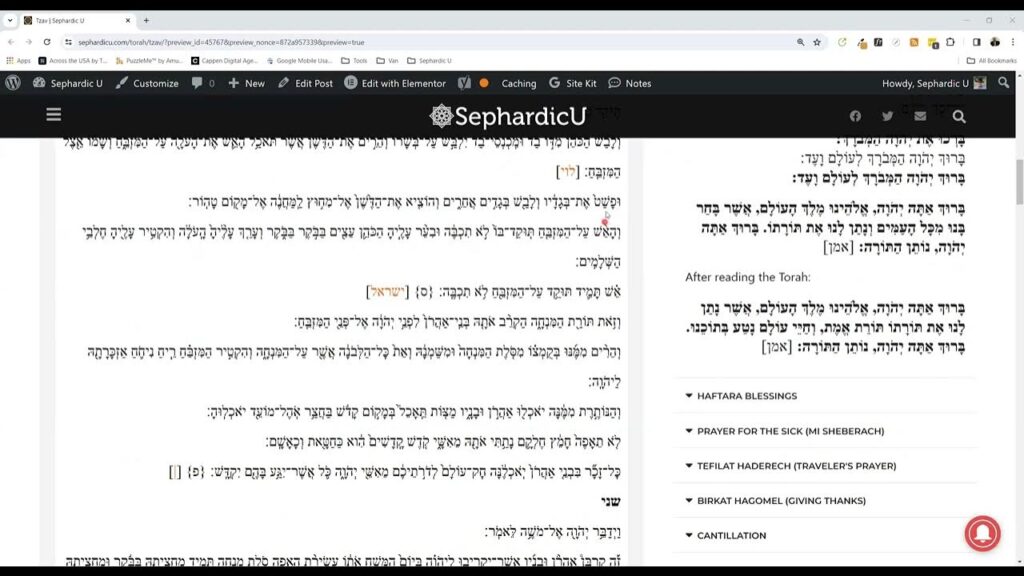
Parashat Tzav Weekday Torah reading Moroccan Te’amim Source link
What Was The Tabernacle (Mishkan)?

Discover the intricacies of the Mishkan, the portable tabernacle housing the divine presence among the Israelites in Exodus.
Parashat Pekudei: Tabernacle Completion
Unlock the divine mysteries within Parashat Pekudei, where meticulous craftsmanship meets divine presence in the Tabernacle’s completion.
Parashat Vayakhel: Tabernacle Built
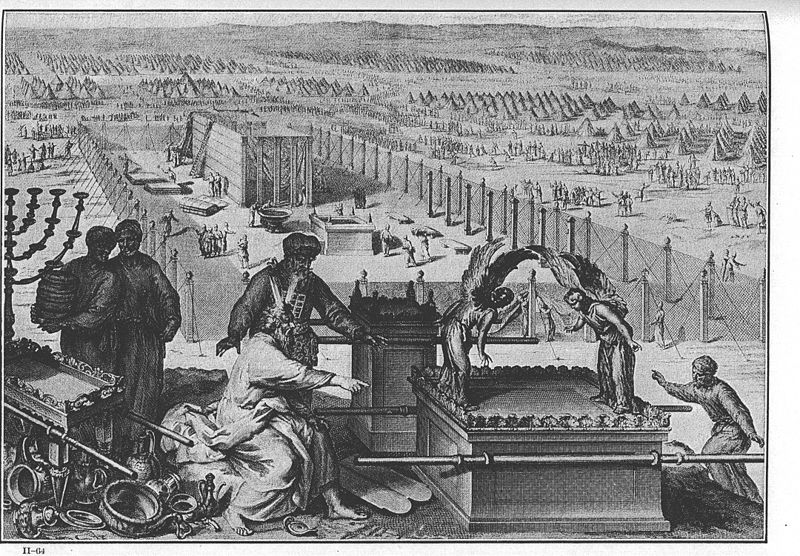
Vayakhel (“He Assembled”) opens as God commands the Israelites to observe the Sabbath. Moses asks for material donations for the building of the Mishkan (Tabernacle), and the people donate. A group of artisans designated by God begin building the Mishkan and its vessels.
Parashat Ki Tisa: Golden Calf
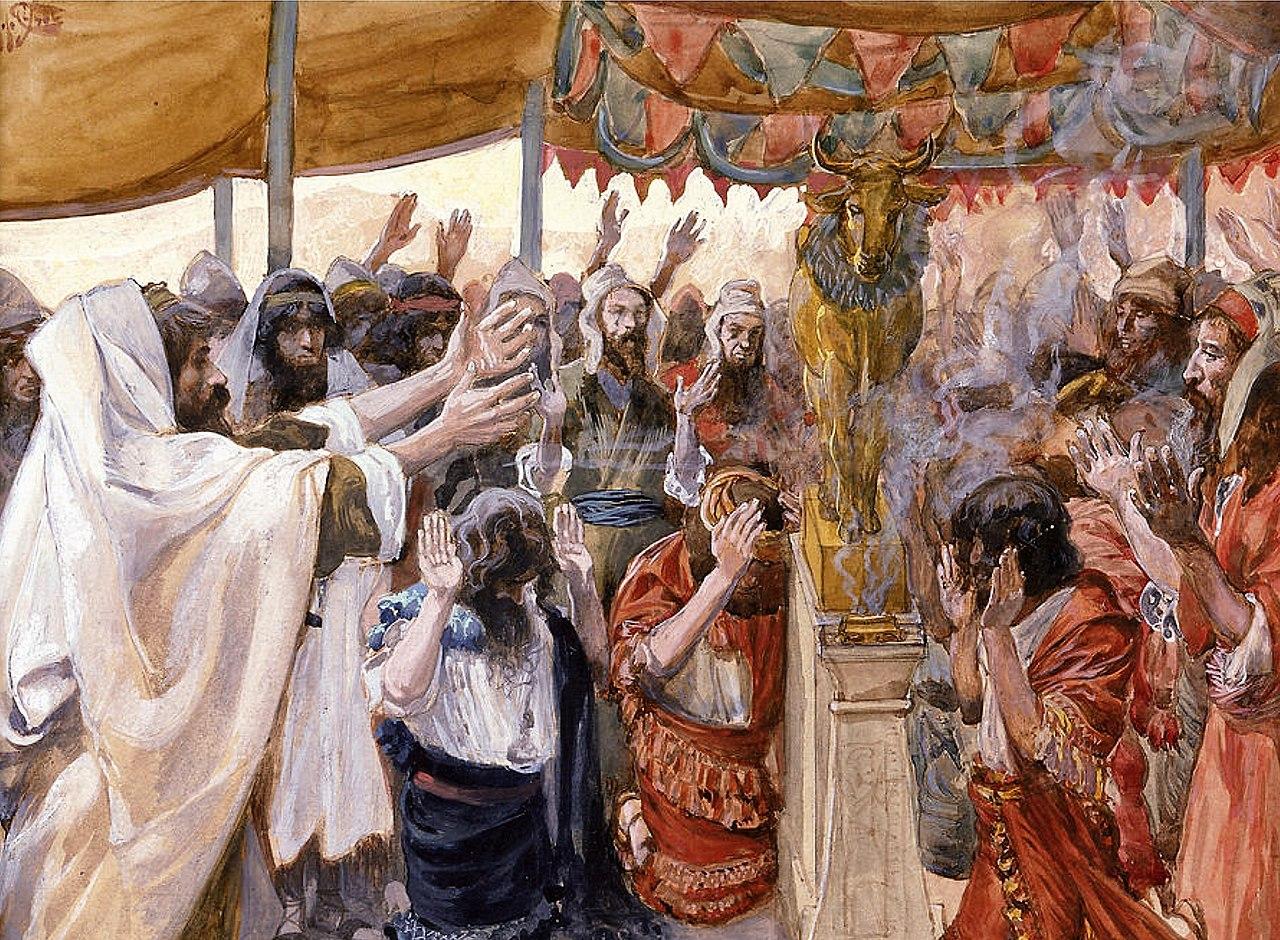
Ki-Tisa (“When You Elevate”) opens as God tells Moses to collect a half-shekel donation from all Israelites and to anoint the Mishkan (Tabernacle), its vessels, and the priests. The Israelites worship the golden calf and Moses breaks the tablets. Moses beseeches God to forgive, and returns with a second set of tablets.
Parashat Tetzaveh: Priestly Garments
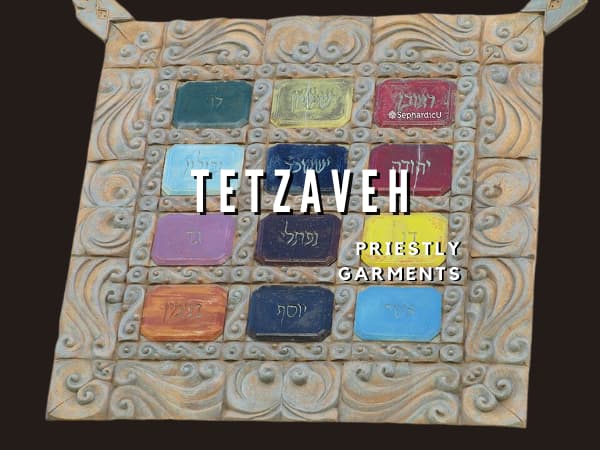
Parashat Tetzaveh reports God’s commands to bring olive oil for the lamp (מְנוֹרָה, Menorah), make sacred garments for the priests, conduct an ordination ceremony, and make an incense altar.
Parashat Terumah: Tabernacle Plans
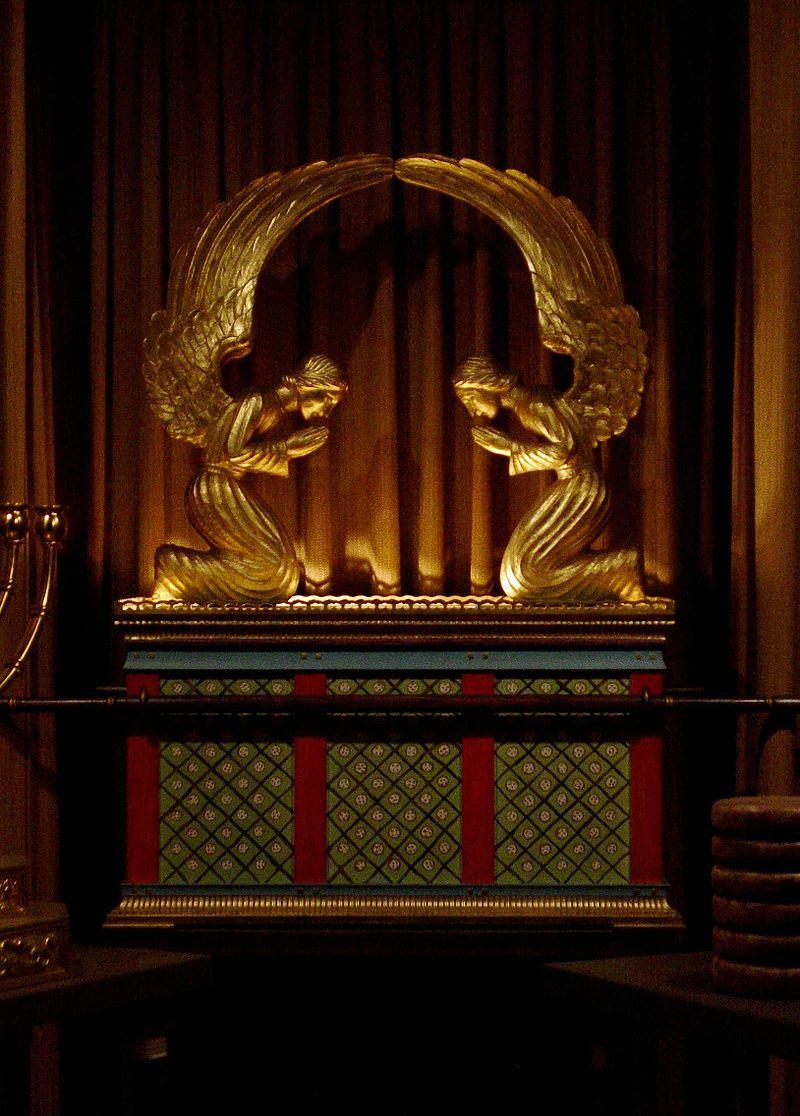
Terumah (“Donation”) opens as God tells Moses to collect donated materials in order to build a dwelling place for God called the Mishkan (Tabernacle). God describes how to build the vessels that will fill the Mishkan – including the ark, table, menorah, and sacrificial altar – as well as the Mishkan’s walls and curtains.
Parashat Terumah: Home, Mishkan, Eden
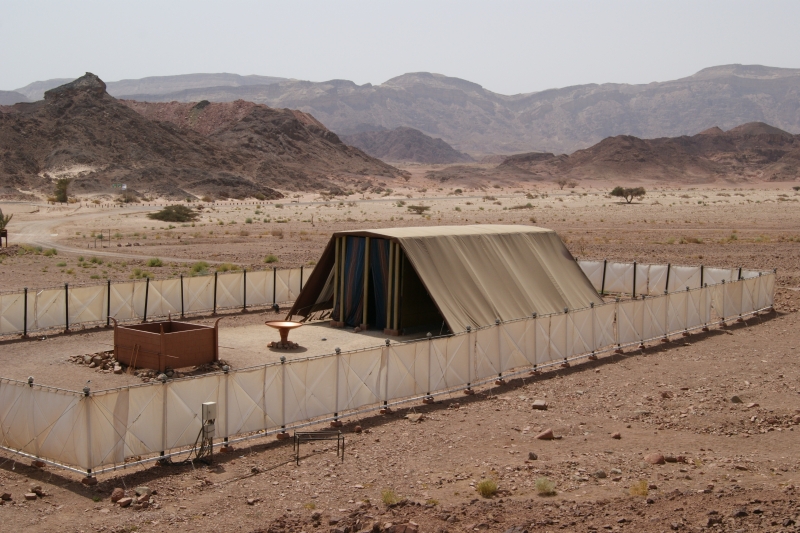
Mishkan and Home What can the Mishkan be analogized to? When I present this question at a class, the first, intuitive answer, is that the Mishkan resembles a home, and the second, which comes after a minute of contemplation, is the Garden of Eden. Like a home, the Mishkan has a table, a candelabra, a […]
Who is in the Details?
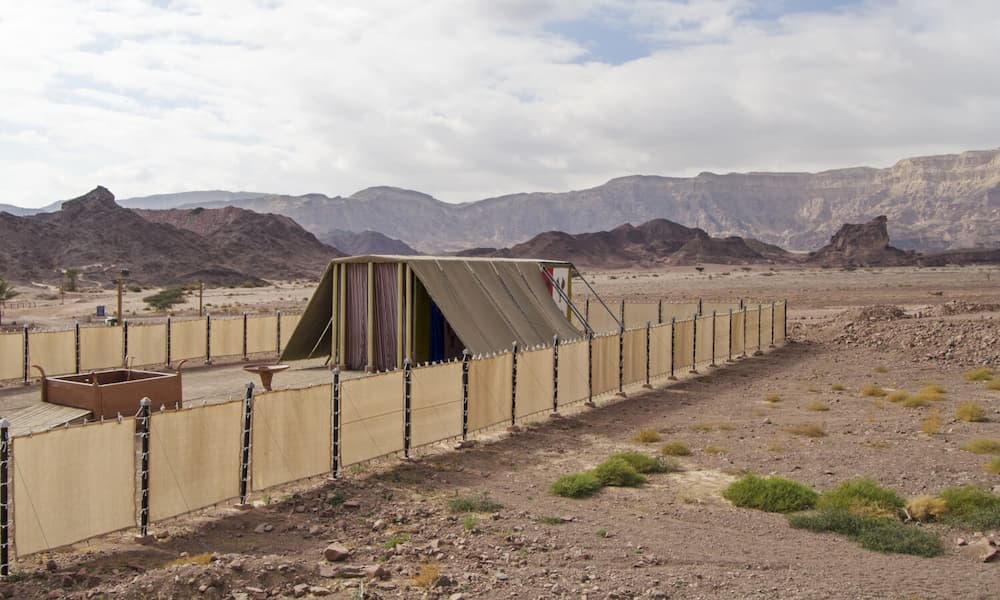
We are taught to believe that the text of the Torah is extremely economic and succinct, and that Torah and redundancy are mutually exclusive. We therefore cannot help but wonder why the Torah is so verbose when describing the construction of the Tabernacle. To answer this question, I think we should consider the phenomenon of […]



